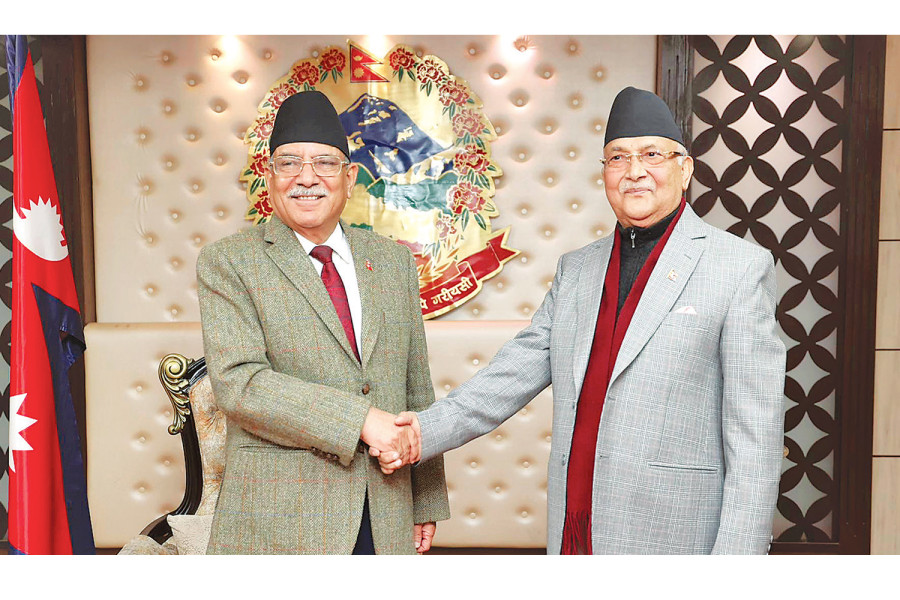Politics
Dahal, Oli discuss ways to resolve transitional justice disputes
The opposition leader says the bill to amend the Enforced Disappearances Enquiry, Truth and Reconciliation Commission Act should be finalised in consensus after some revisions.
Post Report
Prime Minister Pushpa Kamal Dahal and the leader of the main opposition CPN-UML, KP Sharma Oli, have discussed ways to resolve the prolonged dispute on some provisions of the transitional justice bill.
A bill to amend the Enforced Disappearances Enquiry, Truth and Reconciliation Commission Act landed in the federal parliament a year ago.
The Law, Justice and Human Rights Committee of the House of Representatives has been holding discussions on the bill but has failed to finalise it as political parties are at loggerheads over a couple of provisions.
UML chair Oli said that matters related to resolving the remaining issues of the peace process and current political issues were discussed with the prime minister.
"The parliamentary committee is deliberating on the transitional justice bill, and some issues are yet to be resolved. Therefore, we discussed ways to resolve them amicably," Oli told journalists after his meeting with the prime minister at Singha Durbar on Friday.
"UML's views are consistent with regard to the transitional justice bill and we are for endorsing it in consensus from the House committee by making some necessary improvements."
The bill registered in the federal parliament in March last year received 27 amendment proposals from lawmakers. In May, a sub-panel was formed to streamline the amendment proposals and find meeting points within the parties. However, the sub-committee, despite months-long discussions, submitted an incomplete report to the committee in October as it failed to build consensus among the ruling and opposition parties.
Oli also said that his party was steadfast in its stance on making the bill victims-friendly.
Lawmakers couldn’t reach consensus on whether to catergorise arbitrary killings or all killings except those resulting from clashes as serious violations of human rights. The conflict victims want extrajudicial killings, murder of unarmed individuals or all the unlawful killings to be labelled serious human rights violations. They have also demanded that serious mental or physical torture should also be listed as serious violations of human rights, thus non-amestiable.
The parliamentary committee also has failed to decide what happens in case the victims of human rights violations refuse to reconcile.
The then rebel CPN (Maoist) led by the incumbent prime minister, Dahal, ended the decade-long insurgency and joined peaceful politics after signing a Comprehensive Peace Accord in 2006.
Though Nepal's political forces were able to manage the Maoist arms and army, they are yet to conclude the transitional justice process.
As many as 63,718 complaints are under consideration of the Truth and Reconcialition Commission while the Commission on Enforced Disappeared Persons has around 2,500 complaints to investigate.




 20.9°C Kathmandu
20.9°C Kathmandu














